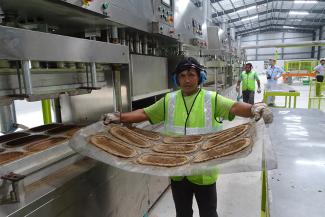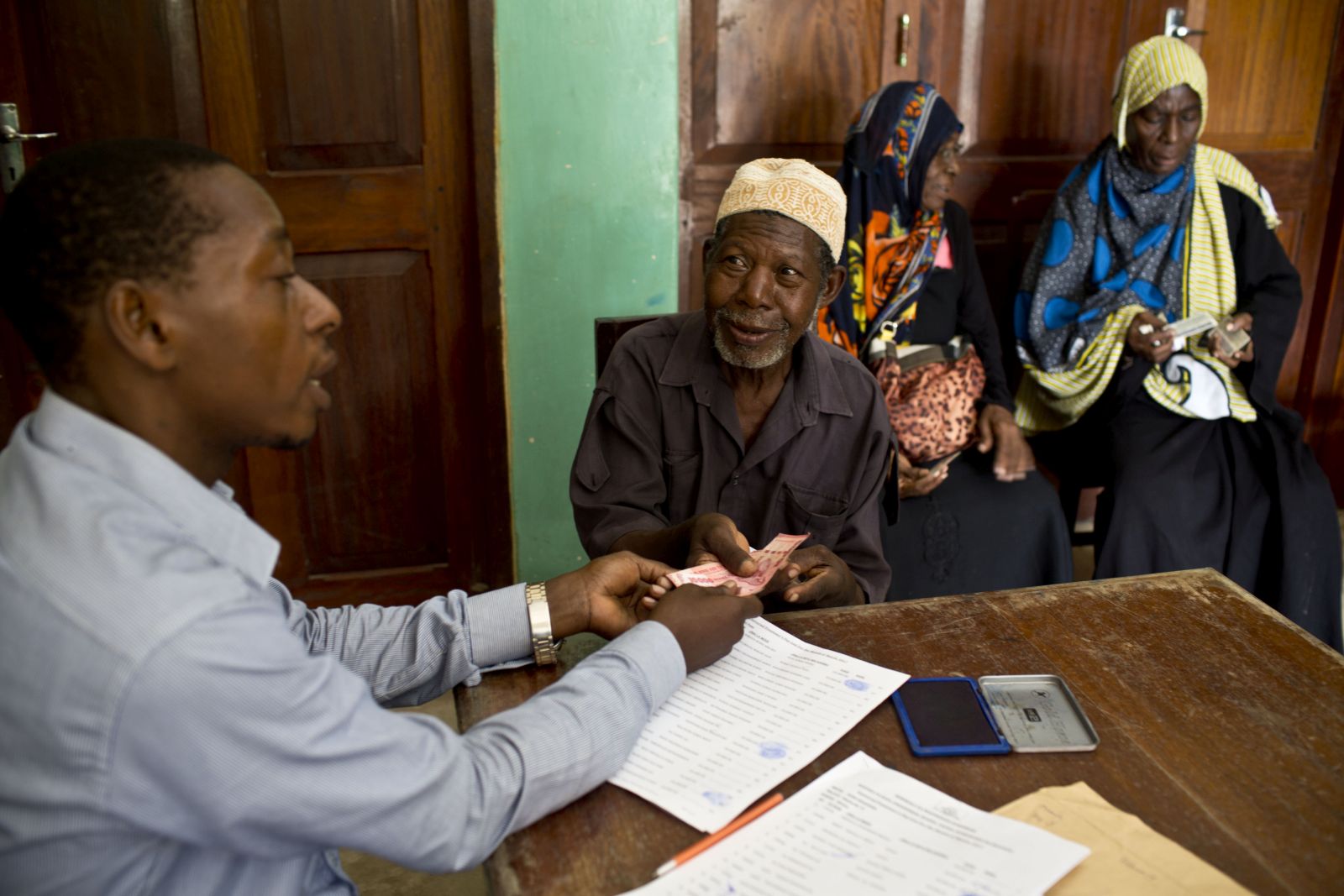Avoiding plastic
Growing awareness

Why did you and Bio-Lutions founder Eduardo Gordillo choose India as a place to set up a factory?
In India, the conditions were perfect. In 2015, the Karnataka state government banned the use of all plastics below a certain thickness. The ban included most disposable items. We had the idea to set up a production of disposable materials for packaging and other purposes on the basis of natural, biodegradable resources. So we decided to jump into the business in Karnataka and opened the factory in Bangalore. We thought it was the right thing. Our business is of ecological and social relevance. Moreover, India is a huge market. We have a lot of festivals, weddings or other events where people use items that need to be disposed of later.
How did you meet Eduardo who is an entrepreneur from Germany?
We have a similar background. We are both architects and industrial designers. I did a lot of package and display design, and I used to get these products made in a factory in China. Eduardo was cooperating with the same factory. So about a decade ago, we met in China and became acquaintances. We realised that we think along the same lines. When he started Bio-Lutions, he asked me if I was interested to set up the factory in India. The timing was perfect because of the plastics ban. Implementing the project was tough though, because the scale of operation is huge compared with what we were doing before. But now we are operating successfully. In the end, it was a very good decision and I am extremely happy that we did it.
What was the biggest challenge?
Initially the funding was the biggest problem. We were not supported by a big corporation in the background. So at the start, it was all our personal money. When we decided to build a large facility, however, it was clear that we needed additional funding. Luckily, the KfW subsidiary DEG gave us a loan worth € 500,000, so we could move ahead in Bangalore. By now, other stakeholders have invested money in our business. Today, DEG and Delivery Hero SE are among the key investors. We are fine now, but as the business grows, we will have to keep investing.
You produce disposables and packaging that are completely made out of plant residues (see box next page). Can you compete with the plastic disposables, that are still on the market in spite of the ban?
The plastic ban has not yet been fully implemented in Karnataka. But it will become compulsory. The big retail outlets and restaurants do not use plastic tableware anymore, but masses of small bistros, coffee shops and street-food stands still do. That said, our products are competitive. Virgin plastic products are not cheaper. But we do have a problem with recycled plastic that is cheap and of poor quality. It cost half the price of what we offer, and is still used a lot. The plain truth is that you cannot change everything within a short time. It takes years and decades to change the market and people’s attitudes. The full implementation of the plastic ban will certainly help us.
Are attitudes to plastic changing in India?
It is not easy to convince people, because a lot of them still struggle to survive and get enough food to eat. But the world is changing and people are realising that there is too much plastic everywhere. They are slowly realising that clean air, safe water and healthy soils are essential for survival. They understand that getting sick because of bad food or water can be quite costly, especially if they have to go to a hospital. One challenge we face, moreover, is that our products are not made for long-time use. You’d probably use one of our plates for 20 minutes or so, and afterwards it is waste. Nonetheless, our approach is sustainable and I am sure our success will prove sustainable too.
Who are your costumers?
We have a couple of distributers, and they sell our products to wholesalers. Supermarkets, restaurants et cetera then procure them from the wholesalers. We have started to export to Europe, especially Germany. We have three customers in Germany, including a nationwide supermarket chain.
You use sugar cane leaves, banana stems and similar organic waste as raw materials. Where do you get them from?
We partner with a non-governmental organisation in our region and they work with farmers. The NGO is called Vikasana and its head office is about 50 kilometres away from our factory. They focus on organic agriculture, watershed management, bio-diversity conservation, child education and women’s empowerment. We get all the raw materials from their farms. In cooperation with Vikasana, we established a collection centre in their region where the farmers take their materials. We also collect it from the farmers directly.
How many jobs did you create in India?
We created about a hundred jobs in our factory in Bangalore as well as 15 jobs in our collection centre. Our team works year-round with equal opportunities for men and women. We want to create job opportunities and economic value in the region, because we see ourselves as a part of the local community. We can directly hire from the local people as we do not require special qualifications from our factory employees. We train them on site for their respective positions.
Do you have plans to expand your business?
Yes, we are in the process of expanding our factory in Bangalore. We will put in more machines and increase the production. And we also want to expand to other regions in India. There are negotiations to set up two new plants, and we think that will happen within six to 12 months. This is challenging. We’re looking at completely new plants, new farmers and different raw materials. We are rising to similar challenges in Germany, where we are currently building a new production facility near the capital Berlin. It will become operational this year. We also plan to open a factory in Thailand in the near future.
Kurian Mathew is managing director of Bio-Lutions India.
Contact: Celine Barth, Communications and PR
cb@bio-lutions.com














